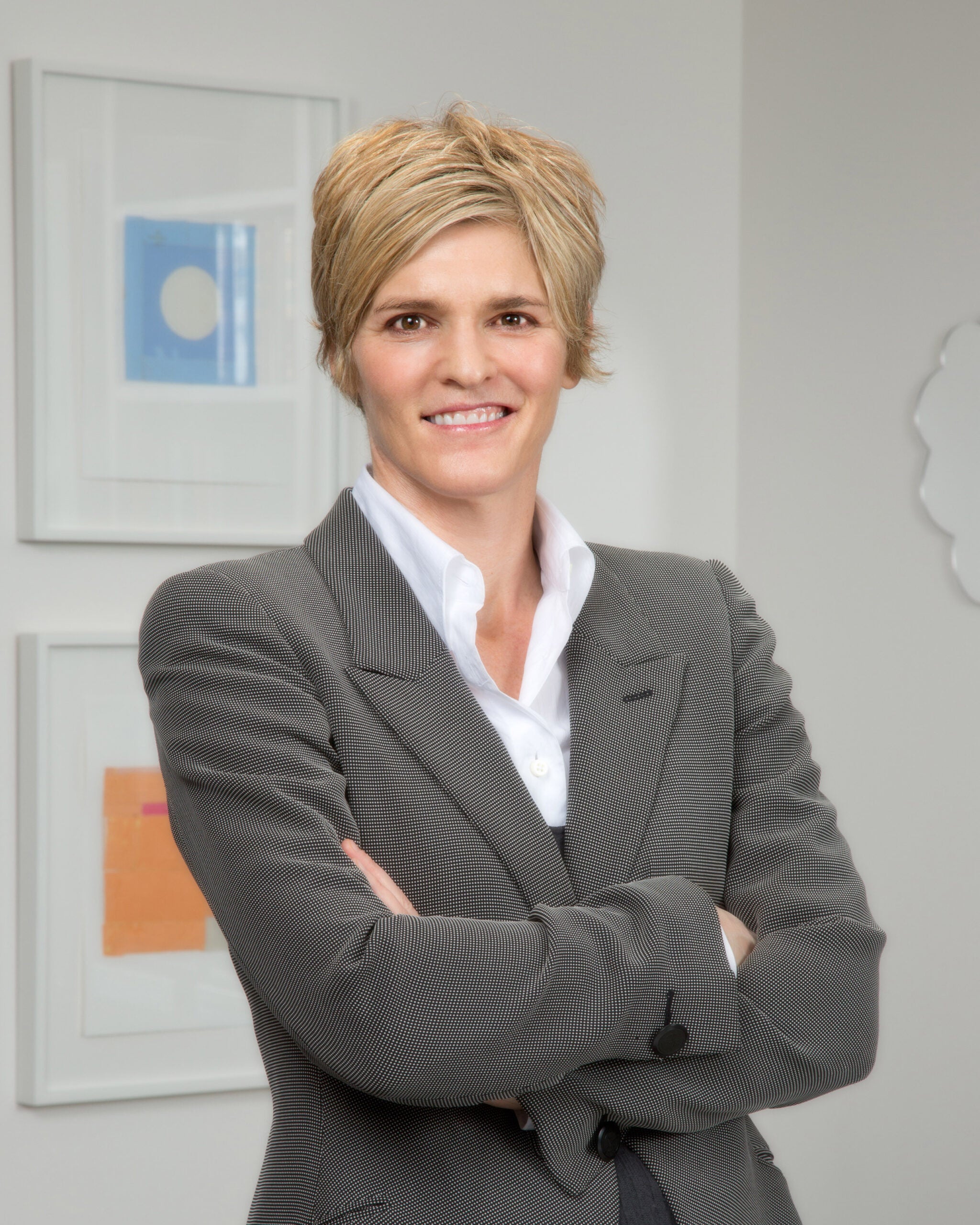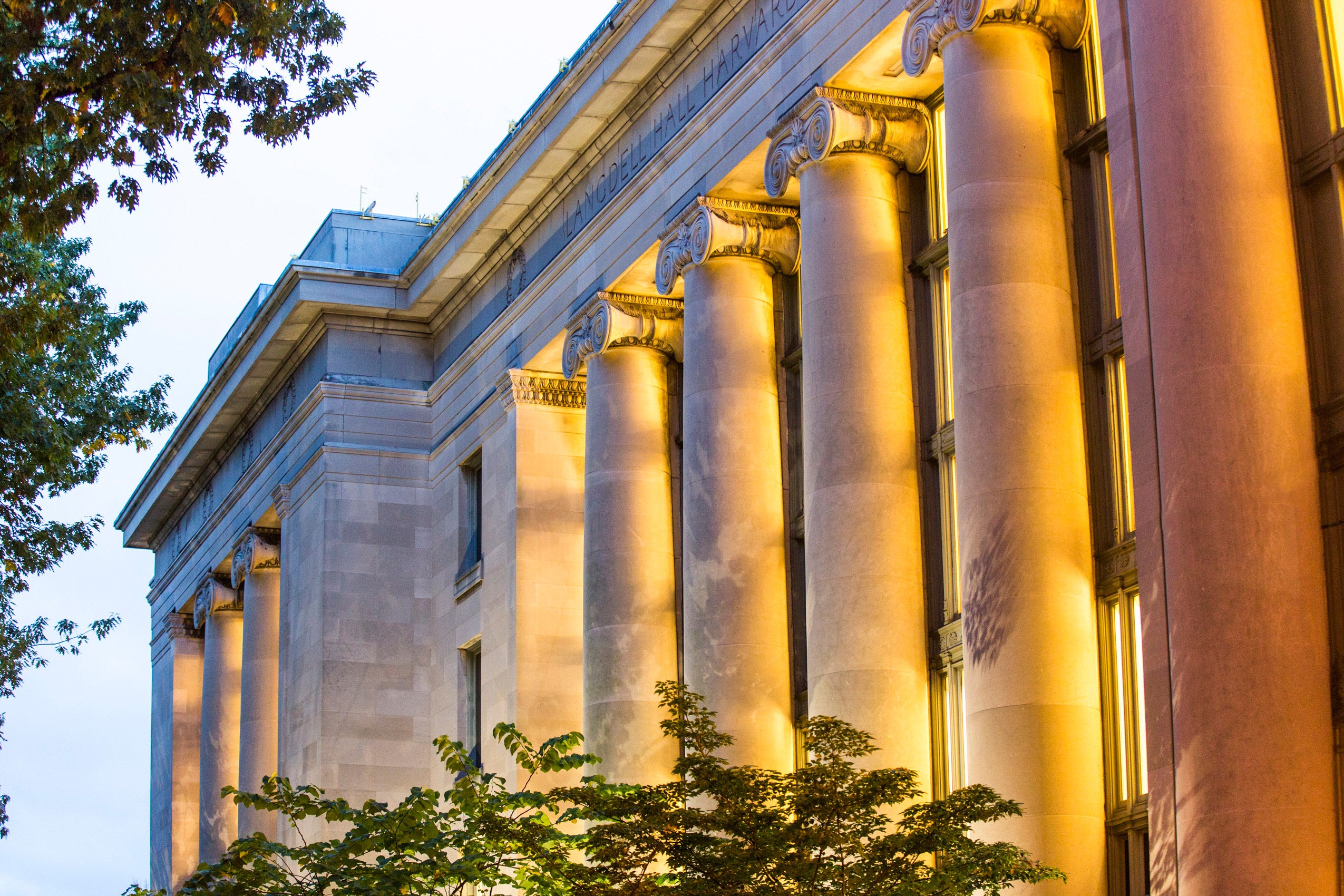The 2016 presidential race — and the many events and controversies surrounding it — have prompted HLS scholars to share their viewpoints, to examine the political landscape and to address issues that will have national and global consequences far beyond November 8. As the season draws to a close, here is a selection of their articles and op-eds.
The “Thick Line” of 2016
November 11, 2016
An op-ed by Adrian Vermeule: In transitional justice, the “thick line” is a deliberate policy of forgetting what went before. I want to suggest a version of the thick line for the 2016 election campaign; more specifically, a one-year moratorium on pointing out the inconsistency or even hypocrisy of others, based on statements they made during the campaign.
Supreme Court Never Imagined a Litigant Like President Trump
November 14, 2016
An op-ed by Noah Feldman. Only two presidents have had to deal with private lawsuits while in office. One was John Kennedy, who settled a suit involving a car crash that happened during his campaign. The other was Bill Clinton, sued by Paula Jones for making sexual advances toward her when he was governor of Arkansas. President-elect Donald Trump is involved in 75 pending lawsuits. That’s a problem — potentially a serious one.
Continue Reading at Bloomberg »
Why Does The New Constitution Matter? An Interview With Dr. Lawrence Lessig
November 13, 2016
Dr. Lawrence Lessig is more than just another academic with a keen interest in Iceland. He has also been following Iceland’s experiment with a constitutional draft for years now, has written extensively on the subject, and has visited the country on a number of occasions to meet and consult with the people working most closely with the process. In the run-up to the parliamentary elections, the constitutional draft was a subject raised by a number of parties, so we touched base with Dr. Lessig to get his thoughts on what this draft means, and why it matters not just to Iceland, but possibly to the rest of the world.
Continue Reading at The Reykjavik Grapevine »

2016 Election implications for climate change regulation: Not as bad as it seems?
November 10, 2016
An op-ed by Jody Freeman: The stunning results of the 2016 election have prompted headlines suggesting that Trump will, with the help of the Republican Congress, dramatically reverse the Obama legacy on climate, energy and the environment. But how realistic is this threat? The short answer is: the picture is significantly more complicated, and markedly less bleak, than the headlines suggest.
Three Priorities for the New President
November 13, 2016
A letter by Simon Hedlin `19. After a deeply polarizing election, Donald Trump’s priority should be bipartisanship. So, here are three things President Trump ought to do: 1. Nominate a moderate Supreme Court justice, such as Judge Consuelo María Callahan of the Ninth Circuit. Ms. Callahan, who is Hispanic, was nominated by George W. Bush and was confirmed 99 to 0 by the Senate. 2. Select several Democrats for high-profile cabinet positions. Senators Joe Manchin and Joe Donnelly, both of whom are known for their bipartisanship, would be good candidates. 3. Resist the temptation to fill vacancies with partisan surrogates like Newt Gingrich and Rudy Giuliani. Instead, Mr. Trump should look to outsiders, such as Paul Brest, former dean of Stanford Law School, and the activist investor Carl Icahn.
Continue Reading at The New York Times »
Morning in America: November 9, 2016
November 8, 2016
An op-ed by Heather Scheiwe Kulp: You roll out of bed, seeking coffee and your morning news. Groggily, you realize it’s Wednesday morning, November 9—the day after the presidential election. S/he’s won.
You may be thrilled. You may not be. Either way, you have to go to work/the dinner table/a church potluck/your kid’s soccer game today with people who may not feel the same way.
It’s morning in America, and it’s time to repair the vast breaches this election season created.
Don’t Expect the Supreme Court to Change Much
November 10, 2016
An op-ed by Cass Sunstein. The Donald Trump presidency, coupled with the new Congress, is likely to produce major changes in federal law. But for the Supreme Court, expect a surprising amount of continuity — far more than conservatives hope and progressives fear. If, as expected, Trump is able to replace Justice Antonin Scalia, the court will look a lot like it did until Scalia died in February: four relative liberals (Ruth Bader Ginsburg, Stephen Breyer, Elena Kagan, and Sonia Sotomayor); two moderate conservatives (John Roberts and Anthony Kennedy); and three relative conservatives (Clarence Thomas, Samuel Alito, and the new justice).
Continue Reading at Bloomberg »
Just Remember Richard Nixon
November 10, 2016
Time spoke with Jack Goldsmith, a Harvard Law School professor, a senior fellow at the Hoover Institution and former Assistant Attorney General in the George W. Bush Administration, about the role of executive power in a Donald Trump presidency. What checks will there be on a Donald Trump presidency? The potential checks are many, including Congress and the Courts, the free press and many internal Executive branch watchdogs like inspectors generals, lawyers and the permanent bureaucracy. And of course the people in the next election.
The Constitution Is Built to Protect the Losers
November 9, 2016
An op-ed by Noah Feldman. It’s all about the Constitution now. Republicans will control the White House and both chambers of Congress. They will be able to pass — or repeal — their preferred laws, because that’s democracy. But to the Donald Trump opponents worried about what his presidency will bring, know this: There will still be limits to congressional or executive action, limits dictated by the Constitution and enforceable by the courts. The Constitution is designed to resist the tyranny of the majority. James Madison’s machine of constitutional protection is about to kick into gear.
Continue Reading at Bloomberg »
Victory Speech Was Part Lincoln, Part Trump
November 10, 2016
An op-ed by Noah Feldman. The financial markets thought Donald Trump’s conciliatory victory speech early Wednesday morning meant something. That interpretation seems plausible. If nothing else, Trump’s tone suggested that he realized the markets were getting volatile and that he wanted to calm the waters by giving the most conventional speech he’s ever delivered.
Continue Reading at Bloomberg »
Hundreds Of Mass. Volunteer Poll Monitors Ready For Election Day
November 4, 2016
A nonpartisan Boston-based organization is training election protection volunteers to monitor the voting process across the country on Election Day. Given the heated political rhetoric ahead of Nov. 8, the Lawyers’ Committee for Civil Rights and Economic Justice says it’s seeing increased desire from folks wanting to get involved, including here in Massachusetts. At a recent packed, all-ages training session at Harvard Law School, Sophia Hall detailed volunteer poll monitoring. … Hall says the focus is on places with a combination of past voting issues and diverse demographics. “As we’ve seen nationally with litigation about voter ID laws and early voting, we know that the group that’s most likely to be disenfranchised is going to be people of color and low-income individuals, as well as students and elderly people,” Hall said.
Four Steps to Save American Politics
October 28, 2016
An op-ed by Cass Sunstein. Donald Trump has taken a battering ram to longstanding political norms — the unwritten conventions that make governance possible. But even before he decided to run for president, those norms were under assault. Immediately after the election, one of the most pressing questions will be how to restore them. To answer that question, let’s assume what philosophers call a “veil of ignorance.” If we didn’t know whether the president would be Democratic or Republican — if it could turn out to be Clinton or Trump — what are the minimal norms on which we might agree? Here are four suggestions.
Continue Reading at Bloomberg »
How James Comey Can Clean Up the Mess He Made of Hillary Clinton’s Emails
October 31, 2016
Until this past weekend, it was easy to construe FBI Director James Comey’s extraordinary intrusions into the presidential campaign this year as consistent with a career defined by bureaucratic turf protection, and defensiveness of the institutions he’s served. These aren’t always the most high-minded or important principles, but they’ve helped distinguish him from scores of unprincipled opportunists who’ve held and hold positions of high power in our government…As his former Justice Department colleague Jack Goldsmith explains, Comey hasn’t really “reopened” the Clinton email investigation. “[T]he language Comey used in his letter suggests something less than a full reinvigoration of the investigation…something more like a preliminary inquiry to figure out what, if any, aspects of the earlier investigative conclusions might require revisiting.”
Continue Reading at New Republic »
Lawyers’ Fear of Trump Proves Their Point About Bullies
October 27, 2016
An op-ed by Noah Feldman. As a lawyer, I’m embarrassed that the American Bar Association commissioned a report about Donald Trump’s use of libel threats, then refused to publish it out of fear that Trump, the Republican presidential nominee, would sue the organization for libel. The episode, however, dramatizes how effective libel threats are in chilling speech — and how they work in real life, driven by the professional caution that lawyers cultivate on behalf of their clients.
